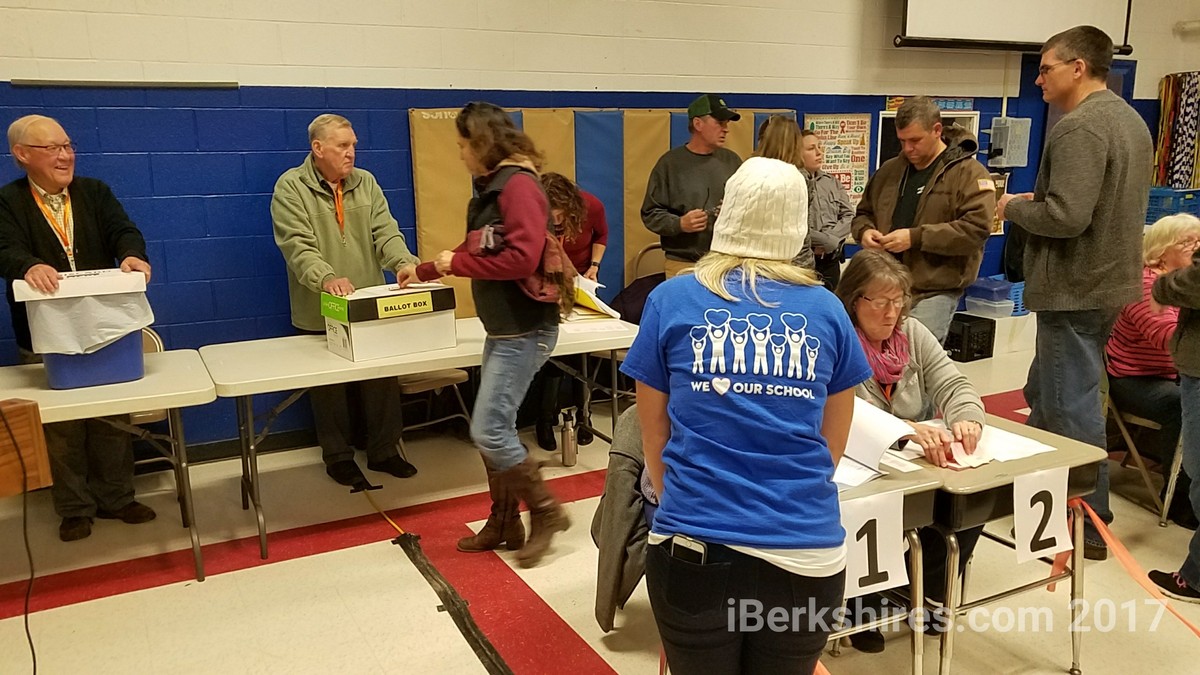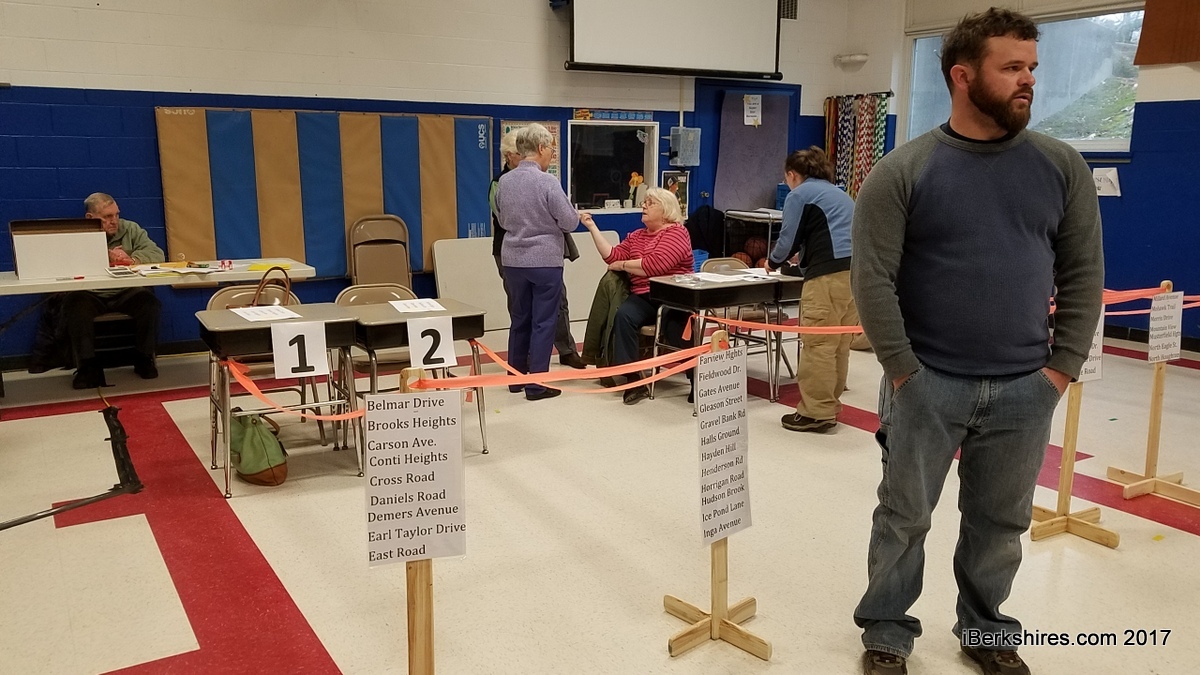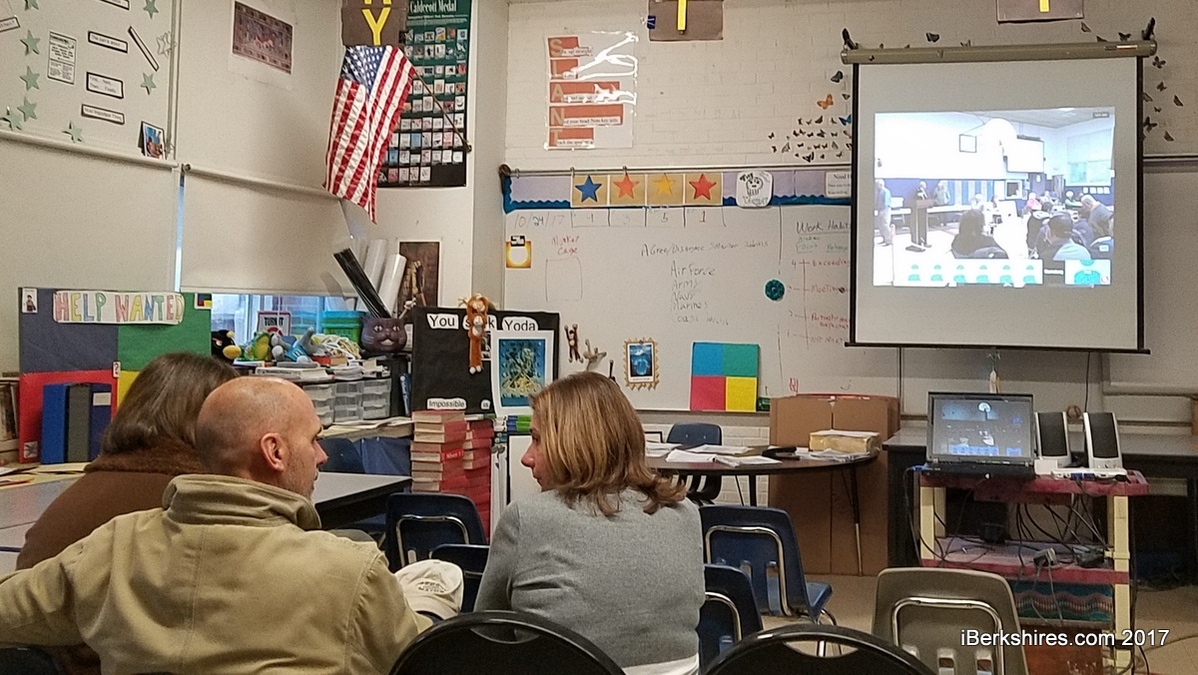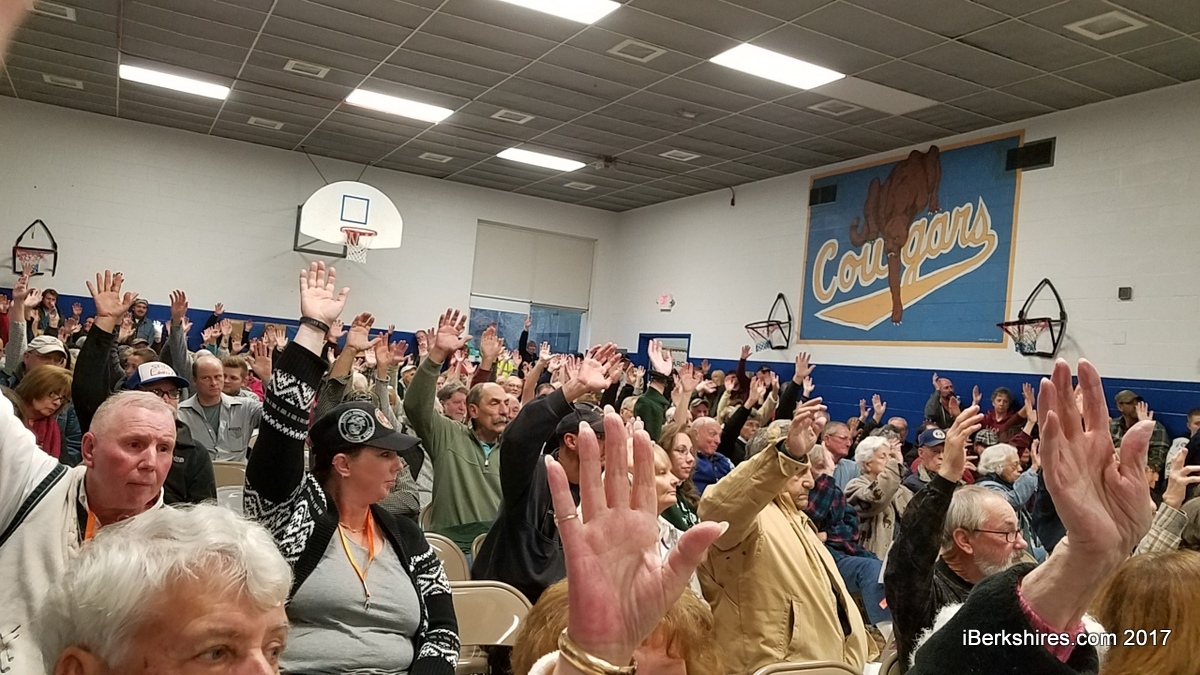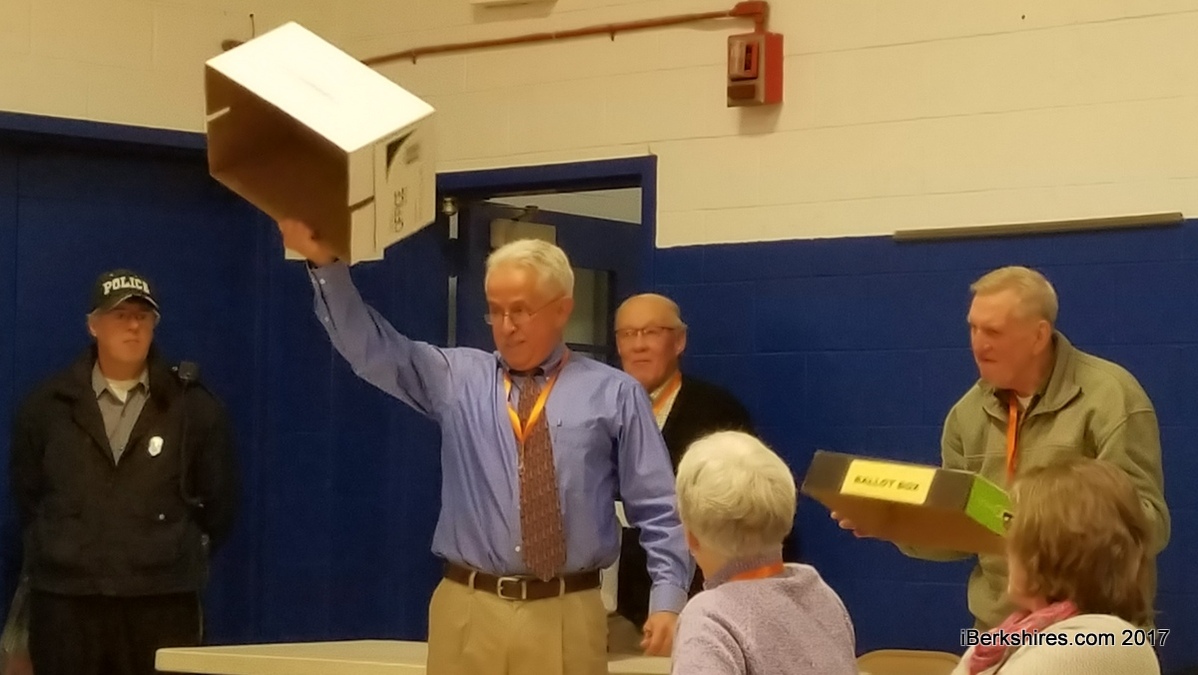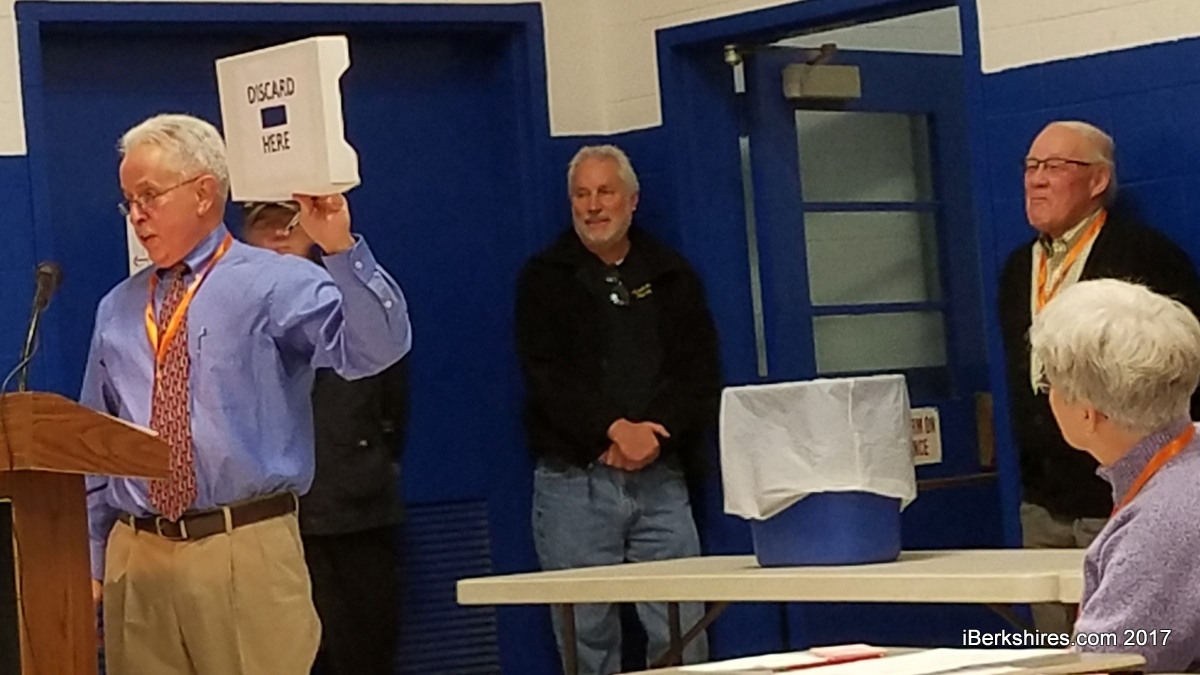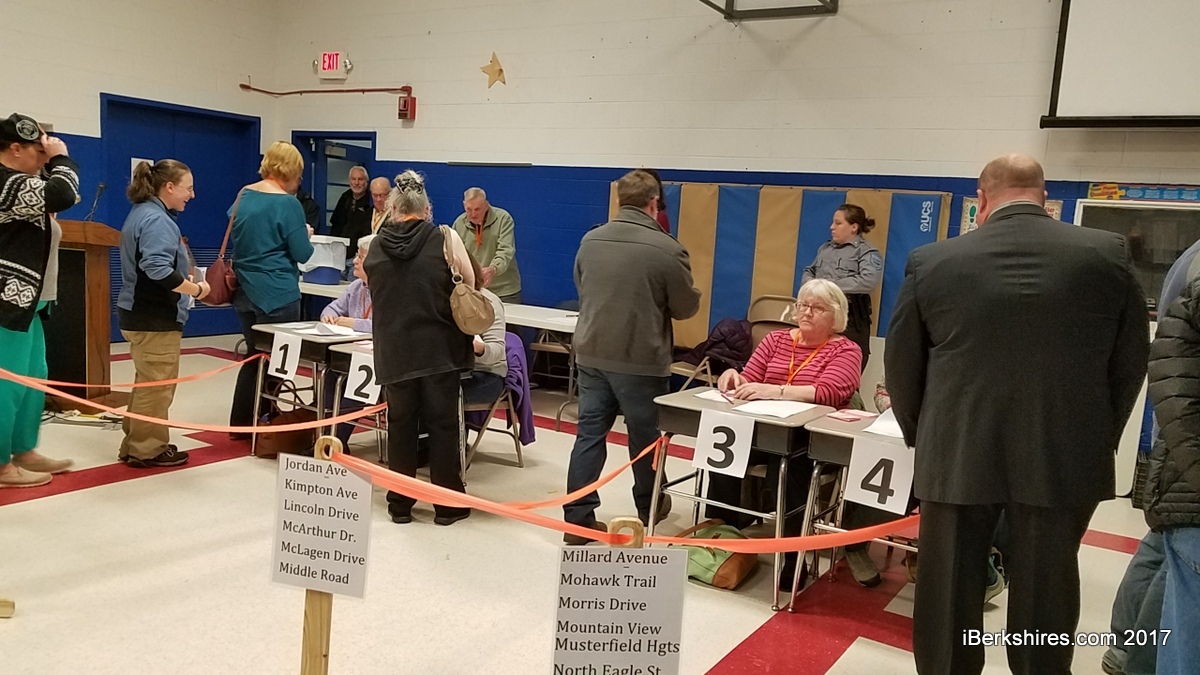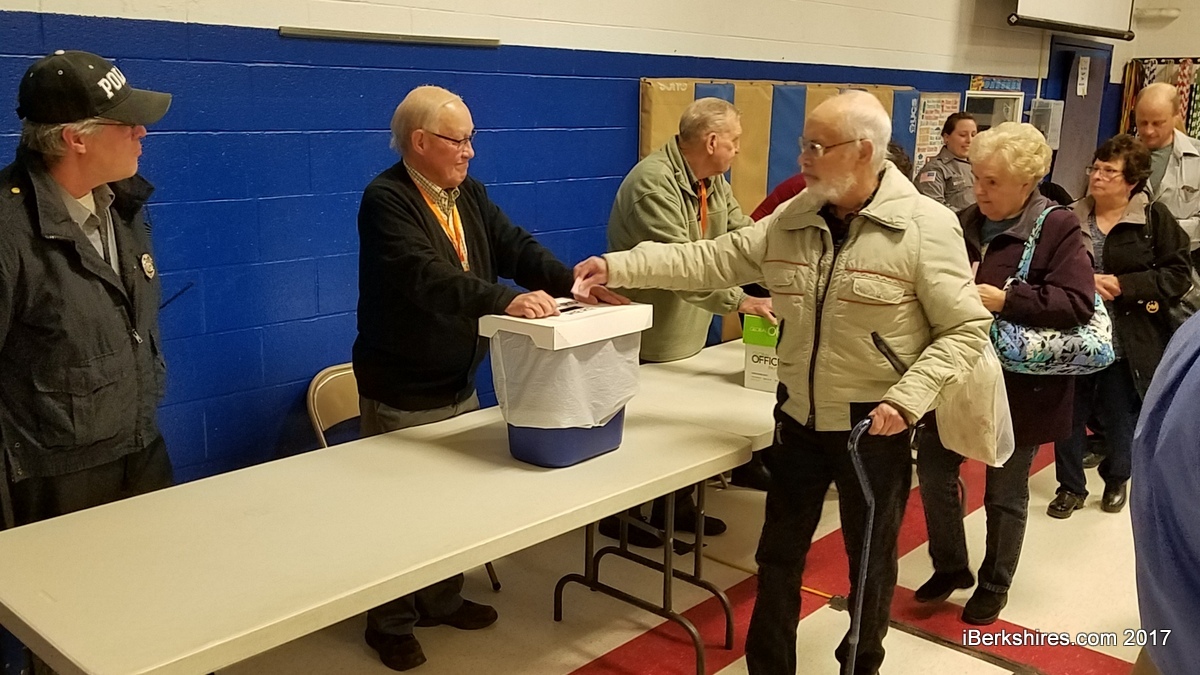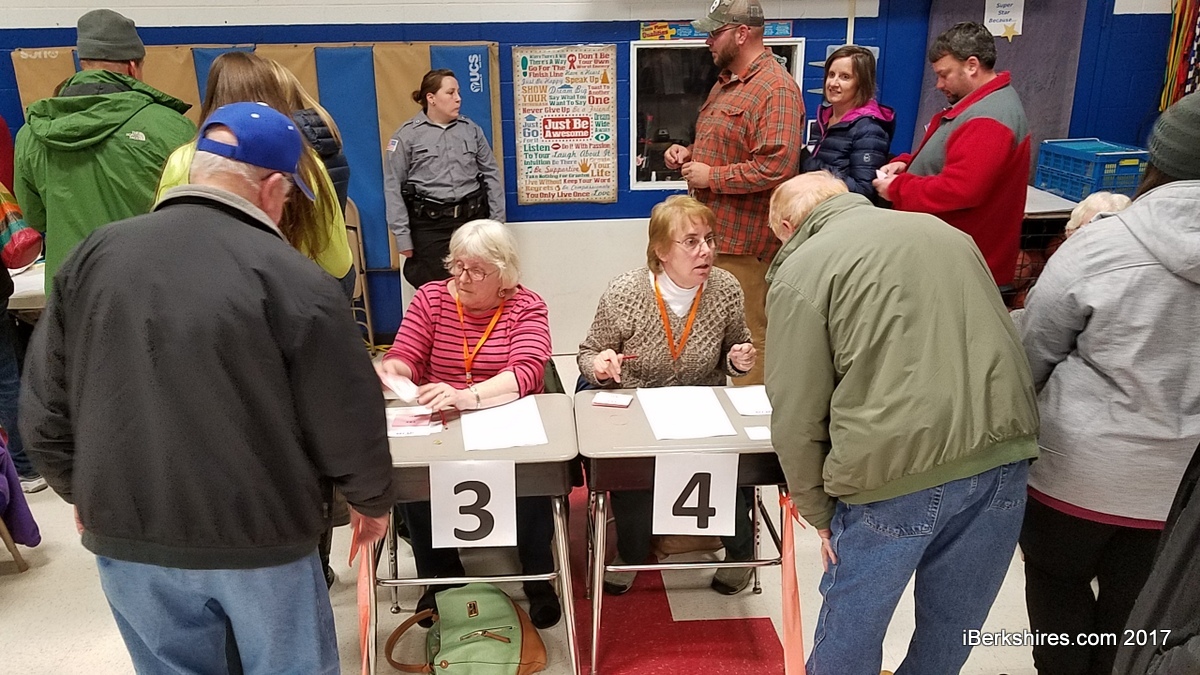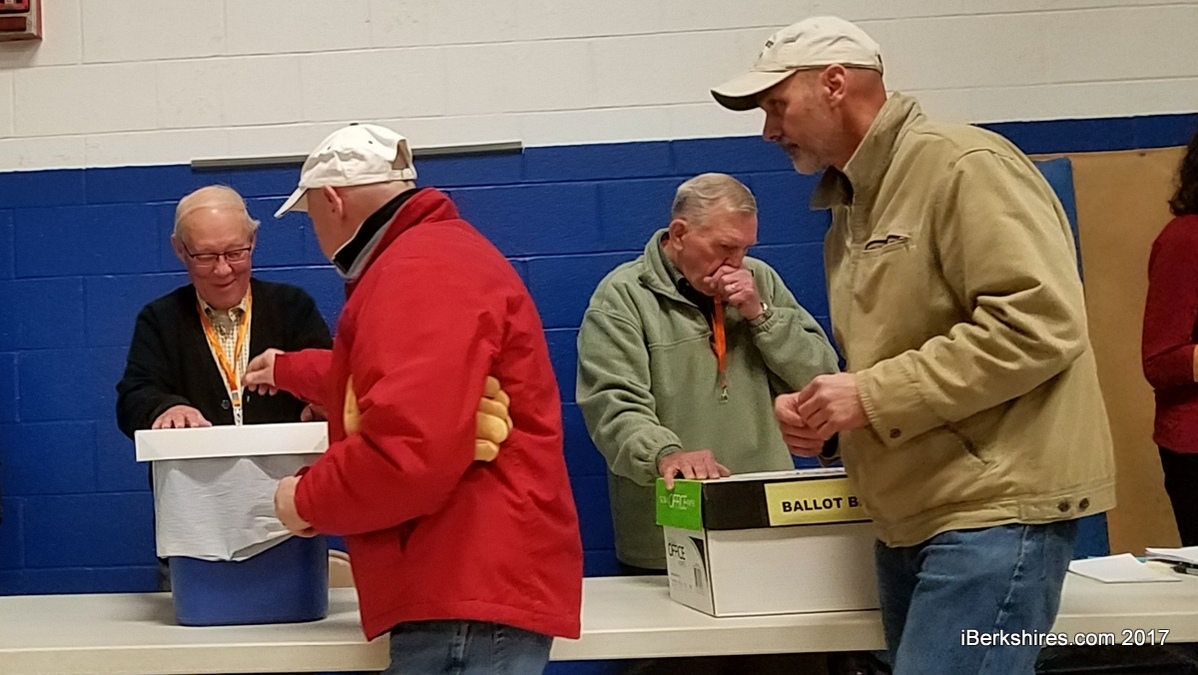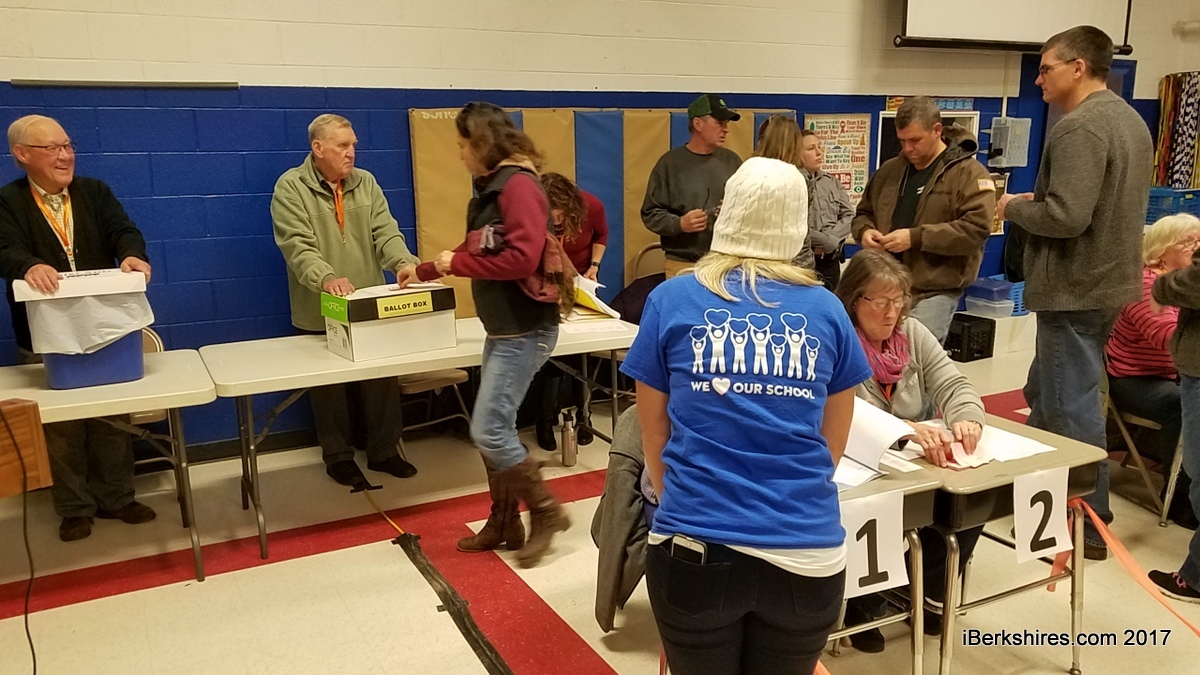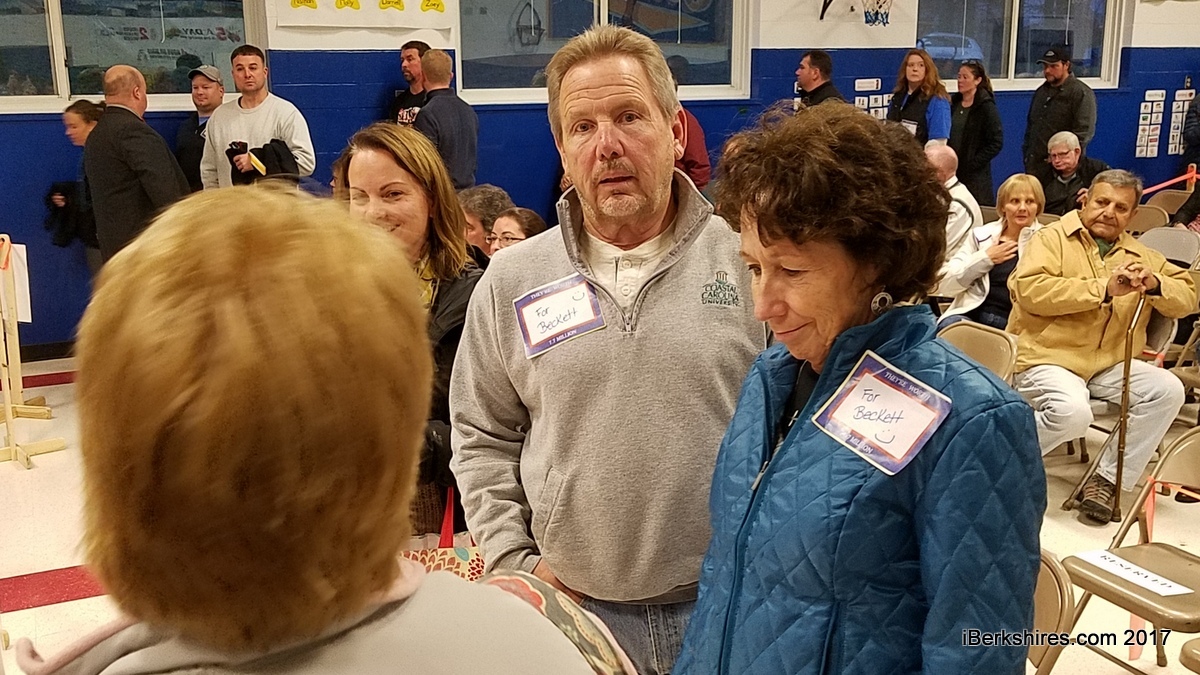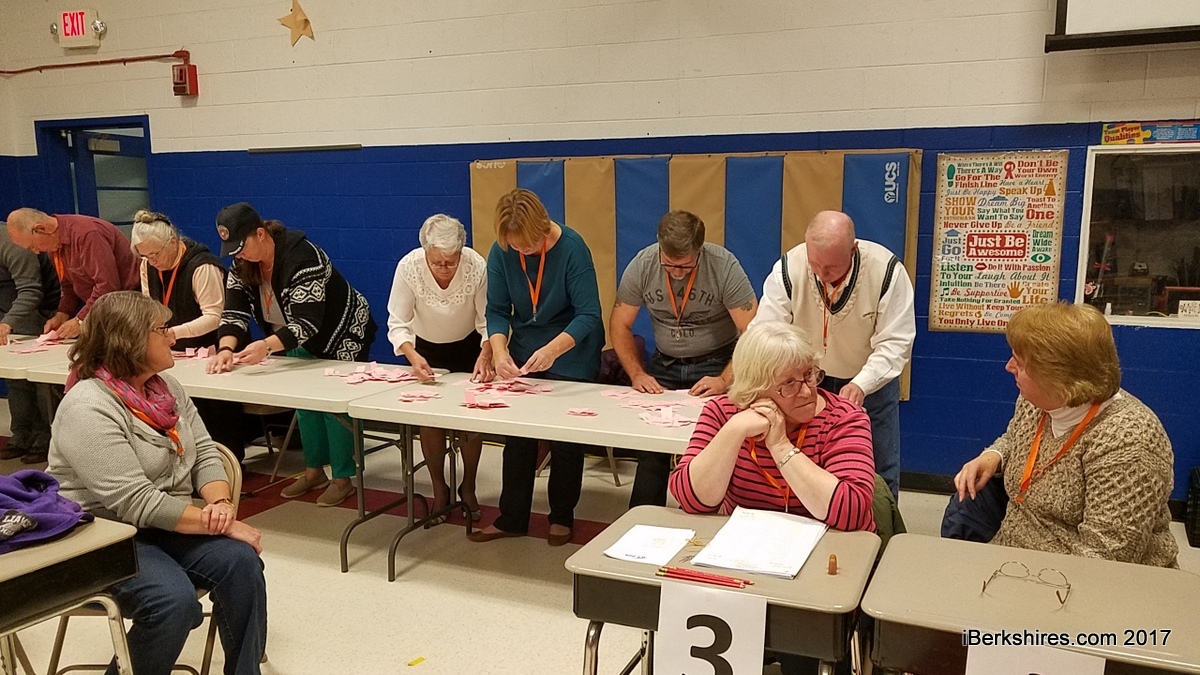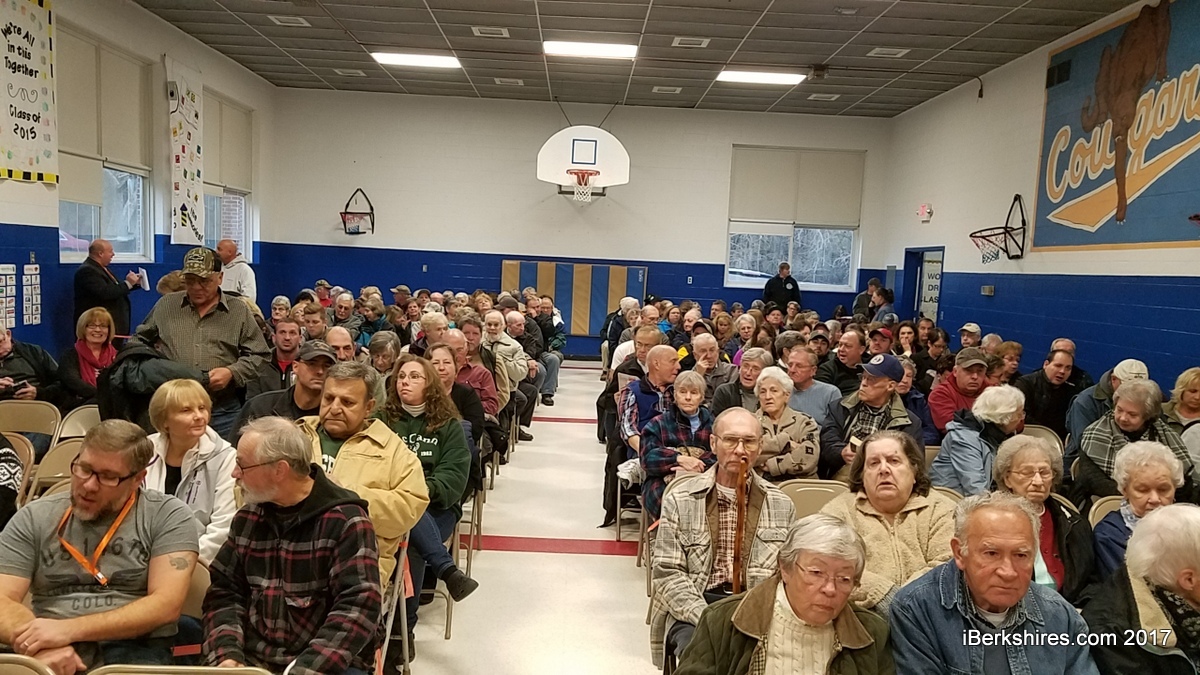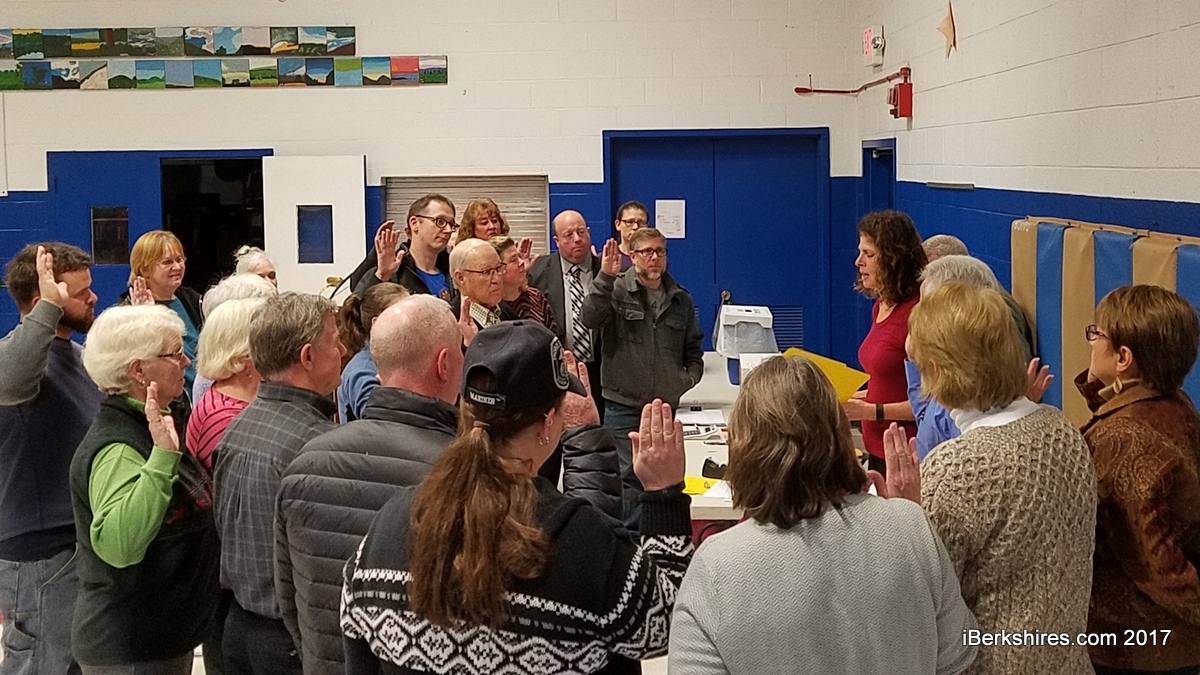
Town Clerk Carol Jammalo, at right in red, swears in assistants on Saturday to help with running the special town meeting.
CLARKSBURG, Mass. — The controversial $19 million school project went down to defeat on Saturday by 292-263.
The borrowing authorization required a two-thirds vote to pass, or 370 yes votes out of the 555 cast.
The result was a flip of September's special town meeting vote that saw the project fail to capture two-thirds of the ballots by a single vote.
School Superintendent Jon Lev said he had previously posted a meeting of the School Building Committee for 5 p.m. on Monday.
"We're going to meet and talk about it," he said.
Selectmen Chairman Jeffrey Levanos said he anticipated another petition for a third vote.
"I think at this point, all the informational meetings have been done," he said. "It's just a matter of trying to sway people ... This obviously speaks volumes of the way Clarksburg feels."
Supporters of the project had hope to swing a few more votes their way after gathering more than 300 signatures to petition for a second special town meeting. But as the town's financial picture became clearer, the initial yes votes began to switch.
One hundred more people voted this time, and the division in town could be seen in the results that nearly split down the middle on the renovatoin/addition proposal.
The town would be responsible for some $7.7 million of the project that over the anticipated 40-year loan period would cost this rural town of less than 1,700 about $15 million. Those figures led voters to reject what Moderator Bryan Tanner on Saturday described as a project whose "scope is unprecedented" in the town's history.
"I am very pleased, I think the town has spoken," said Karin Robert, who had pressed officials about the project's impact on town finances. "I would really like to get a committee together of town people to work with the issues of the school and move forward to fix and repair."
Eric Booth, who had initially been on the School Building Committee when it first formed, felt the first three information sessions hosted by that committee had not fully examined what the $350,000 a year in loan payments would mean.
Town officials had held three more sessions after the revote was scheduled to air out any concerns about the town's finances.
"After the last three meetings, people were able to make a more conscious decision of what was actually going to happen," he said. "It was a majority that went the opposite way."
Booth said he's willing to volunteer his own time and expertise and has a list of electricians, carpenters, plumbers and HVAC technicians "willing to come together to help us out."
It's not clear how these volunteers will square with laws and codes related to public buildings, but a number of residents are sure they can work something out.
The Massachusetts School Building Authority has approved a plan to add about 10,000 square feet (mostly a gym) and fully renovate the structure, including rebuilding the 1970s section to accommodate a preschool. The MSBA is committing up to $11.3 million (70 percent) toward eligible reimbursements; the town would be responsible for up to $7.7 million.
Estimates to repair the most immediate issues — mechanicals and the roof — was set at $4 million and to renovate just the structure with no additions, $11 million.
Clarksburg had been waiting nearly a decade to be invited into the program to deal with its outdated and undersized school. Proponents on Saturday wore name-tag stickers with photos of children, names of children or grandchildren, or declarations like "our future" or "For the Children."
Voting took about an hour and then another half hour or so to count the 555 ballots cast. Unlike September's somewhat chaotic vote, this Saturday afternoon special town meeting was planned out the smallest detail, like a mini D-Day.
Parking was held offsite as much as possible with two DuFour short buses shuttling residents from the Senior Center, Town Hall and the Fire Station. Rather than registering on entrance, voters went up one six registers based on what road they lived on just before they voted. The ballots were the same as the last time — one perforated card with yes and no printed on it.
Six classrooms were opened (and filled) with a livestream feed from the cafeteria where the motions were being made. Twenty-five volunteers were sworn to aid in voting directions and to assist Robert Norcross, serving as assistant moderator upstairs, with residents seated in the classrooms. Each room had a moderator.
Tanner and Norcross were kept in communication by hand radio.
Tanner spent time at the opening of the meeting walking voters through the entire process, including having Raymond Moulthrop, keeper of the ballots, and Al Nelson, keeper of the discarded ballots, rise and show their empty respective recepticals.
"Mr. Moulthrop is the actual voting mechanism for this meeting," he said. "Make sure your vote is accurate the first time."
There had been complaints about the last voting of people keeping their discarded ballots because of concerns they would be mixed in with counted ones, and murmered accusations about who was doing the counting.
Town Clerk Carol Jammalo had both the cast and discarded ballots counted and the counters for the yes and no votes switch over to doublecheck each other.
Most of those voting left as soon as they cast their ballots.
The borrowing article, the only question on the warrant, was read and motioned by Patricia Prenguber, a member of both the School and School Building committees. It was seconded by Select Board member Kimberly Goodell. Mark Denault, who affirmed he had rejoined the Finance Committee, motioned to move the question to an immediate vote and that was seconded by a host of voices.
A hand vote approved the motion both upstairs and downstairs (unanimiously in that case.)
Tanner closed voting at 4:25, about 90 minutes after the start of the meeting.
Robert said she hopes the town can come together now.
"We have to put our energies together, to heal as a town come together as a community and fix this school in the best way we can in a manageable, feasible, affordable way that all residents can live with," she said.
